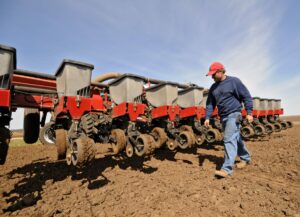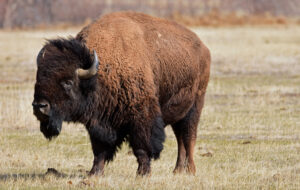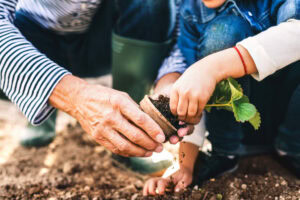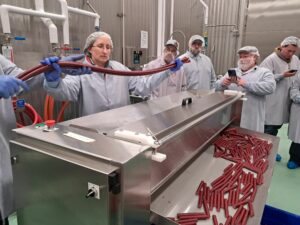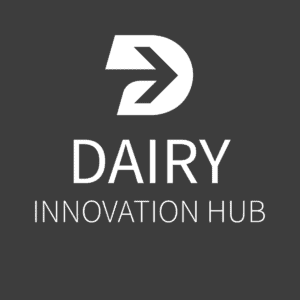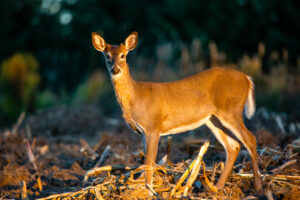Slow Start To Planting
Despite a warm weekend, cool and wet conditions earlier in the week kept equipment out of the fields throughout most of the state. Scattered corn planting was reported in eastern and southern Wisconsin. Field activities included plowing lighter soils, readying equipment, limited alfalfa planting, oat seeding, manure hauling, and fertilizer application. The Crop Progress and Condition report released by the USDA shares details on how things are looking.
Topsoil moisture condition rated 9 percent very short, 15 percent short, 65 percent adequate and 11 percent surplus. Subsoil moisture condition rated 10 percent very short, 22 percent short, 60 percent adequate and 8 percent surplus.
Oat planting progress was 10 percent complete, 5 days ahead of last year and 1 day ahead of the 5-year average. Potato planting has begun and was 11 percent complete. This was 6 days ahead of last year and the average.
Spring tillage was 12 percent complete, 1 week ahead of last year and 3 days ahead of average.
Winter wheat condition was 1 percent very poor, 2 percent poor, 19 percent fair, 65 percent good and 13 percent excellent.
Pasture and range condition was 8 percent very poor, 16 percent poor, 44 percent fair, 26 percent good and 6 percent excellent.
Getting The Word Out About Bison
Melissa Wienkes is the second generation on her family farm in Seymour, raising over 100 head of bison.
She’s also active in the Wisconsin Bison Producers Association, actively promoting and preserving the American bison in Wisconsin.
Maybe you’ve had a bison burger from the association’s famous food truck. Wienkes says you can check out your local bison producer for even more cuts and products. The association launched a new website to help you do just that: https://wisconsinbison.com/
Wienkus has been around bison her whole life and is looking forward to this new leadership role. She says bison can bring value to a farm that’s looking to retire from dairy or beef but still wants to have animals. She says because bison are pretty hands-off animals, it’s also a good way to get into agriculture.
In May, bison will start calving. Bison calves are about 35 lbs – that’s a lot smaller than a 100-lb dairy calf. This means that calving is a lot easier for bison, and producers rarely need to intervene.
Bison are also built for the elements. Wienkus says it’s one of her favorite sites to see bison outside in the winter with snow on their backs. The snow doesn’t melt off of them because they are so well-insulated. The insulation helps in the hot summer, too.
The Wisconsin Bison Producers Association is also sponsoring vet students to come out to bison farms to get hands-on experience with the animals. This is another way the association is trying to grow engagement and knowledge about the industry.
Enjoy Gardening With Your Family
With spring weather knocking at the door, gardening season will be here soon. Area gardeners and anyone with an interest in plants and science are invited to gather ideas at the UW Family Gardening Day on Saturday, May 4. The free, family-friendly event will be held on the University of Wisconsin–Madison campus. It will run from 10:00 a.m. until 1:00 p.m. Activities will be hosted at Allen Centennial Garden, D.C. Smith Instructional Greenhouse, Steenbock Memorial Library and the Wisconsin Energy Institute (WEI).
Each location will host a variety of displays and demonstrations, including hands-on activities with seeds, plants and soil. Attendees can build a terrarium, learn about monarchs, try their hand at flower pounding, ask questions about their own plants, discover books for all ages and also more. There will also be plants and seeds available for people to take home for their own gardens (while supplies last).
Children 13 years and under can complete a “passport” by getting stamps at the UW Family Gardening Day locations. A completed passport will earn them a free vanilla ice cream at the Babcock Dairy Store at nearby Babcock Hall.
“Family Gardening Day is a great way to jumpstart your spring. It’s a great way to get some plants for your garden, do activities with your family, and also enjoy some ice cream after exploring campus,” says Isaac Zaman, horticulturist at Allen Centennial Garden. “Come enjoy new activities in the garden and learn from our fun student groups while you enjoy all the new spring growth!”
All gardening day locations are within about three blocks of each other on the west side of the UW–Madison campus. Allen Centennial Garden, Steenbock Memorial Library as well as the D.C. Smith Instructional Greenhouse are located at 620, 550 and 465 Babcock Drive, respectively. The Wisconsin Energy Institute is at 1552 University Avenue. It is just south across Campus Drive from the greenhouse and Babcock Hall, which is at 1605 Linden Drive.
Find parking lot locations on the campus map. Or try the Madison B-Cycle with a convenient station right on Babcock Drive.
For more information, visit https://science.wisc.edu/family-gardening-day/ or contact Johanna Oosterwyk at jmooster@wisc.edu or (608) 262-3844.
Hayward Musky Festival Makes The Top Three
Cenex, the energy brand of CHS Inc., announced that the Hayward Musky Festival is among the top three in the Hometown Throwdown. The other two festival finalists are Norborne Soybean Festival in Norborne, Missouri and Roseau Fall Harvest Festival in Roseau, Minnesota.
Individuals can vote for their favorite festival now through May 15 at https://cenexhometownthrowdown.com/ to determine the $100,000 grand prize winner.
Hometown Throwdown is a social media contest that Cenex launched this past fall, which encouraged local pride by asking individuals and organizations to share what makes their hometown festival unique. Over 500 festival submissions were received during the entry period from Oct. 3 through Dec. 15, 2023.
The $100,000 grand prize festival winner will be picked after voting closes. The winner will be announced on May 24. The remaining two finalists will receive $25,000 each.
“Each of these unique festivals represent the vibrant spirit and essence of what makes hometown festivals so special,” says Akhtar Hussain, director of refined fuels marketing at CHS Inc. “We encourage everyone to cast their vote and help us decide which festival will receive the $100,000 grand prize.”
New Meat Map Will Guide State Visitors
There are just some professional events you WANT to be invited to, and the Wisconsin Association of Meat Processors(WAMP) is one of those!
This group is made up of large, medium and small butcher shops from across the state – each one specializing in something a little different. Aside from all the professional education and hands-on learning their annual convention offers attendees, it also featured judging award winning entries from across the state for the Wisconsin State Fair – a brand new activity for the group this year. Jake Sailer has served the organization as its president for the past two years. In that time, he says he’s watched the group struggle with external problems created by the pandemic, and pivot toward new growth with an outreach campaign involving “Discover Wisconsin”.
The new “Meat Map” that the association’s assembled is also designed to introduce new customers to meat markets they might otherwise miss when they’re traveling the state. Sailer says it’s all about raising awareness to the artisan’s that make Wisconsin their home. Sailer estimates Wisconsin has approximately 500 butcher shops, putting them number one or two in the nation.
Sailer concluded his term as president of the Wisconsin Association of Meat Processors on Saturday during the conclusion of the state convention. Andy Geiss from Geiss Meat Market in Merrill will step in as the new president of WAMP.
Next Dairy Symposium Is In Madison
The Dairy Symposium is coming up May 15. This event is a day-long, data-rich opportunity for academic colleagues, students, and trainees from the three participating UW Dairy Innovation Hub campuses to share their most advanced research.
Hub events are free and open to the public. Pre-registration is required: https://explore.wisc.edu/DairySymposium24
The symposium begins with registration at 8 a.m. at the Memorial Union at UW-Madison. Sessions begin at 8:45 a.m. The event ends at 5:30 p.m.
Attendees will hear thought-provoking plenary sessions, including Moises Torres-Gonzalez from the National Dairy Council. Event goers can also look forward to research talks from each of the Hub’s four priority areas, shorter “flash talks” from students, and poster presentations from Hub-funded researchers. This is an in-person opportunity at the Memorial Union, but recordings will be available after the live event on the Hub’s YouTube channel: https://www.youtube.com/channel/UC3O0Kp-cThBBaMIZqDjWCRQ
See the complete schedule: dairyinnovationhub.wisc.edu/dairy-symposium/
Ag Companies Encouraged To Enroll In ExporTech
With 96 percent of the world’s population consuming products outside the U.S. and 1 billion people expected to join the global middle class in the next decade, Wisconsin companies are changing the way they think about their businesses.
For companies that want to grow, exporting is no longer a luxury — it’s a necessity.
Applications are open for ExporTech. ExporTech is an export acceleration program that helps Wisconsin companies expand their global market reach. It aims to shorten a company’s “go-to-market” timeline by developing a customized international growth plan for the company’s products in key markets.
Throughout three full-day sessions, CEOs/presidents and senior leaders in sales/marketing, finance, and operations join with non-competing companies to determine their top three export markets and develop an actionable, strategic plan.
Agricultural companies with products including processed foods, grains, mink pelts, livestock, genetics, and more should participate. The Wisconsin Initiative for Agricultural Exports and the Wisconsin Economic Development Corp. help fund ExporTech.
ExporTech graduates realize between $600,000 and $1,000,000 in average incremental exports growth one year after completing the program.
Interested in participating?
In-person sessions, western half of Wisconsin, contact: Heidi Rabeneck: rabeneckh@uwstout.edu
Virtual sessions, eastern half of Wisconsin, contact: Roxanne Baumann: baumann@wmep.org
New Bill Would Support Farming Opportunities For Veterans
The newly introduced Ag Vets Act aims to codify an existing Ag Vets program to direct the U.S. Secretary of Agriculture to award competitive grants to prepare veterans for entering the farming and ranching industries.
“Food security is national security,” says Wisconsin Congressman Derrick Van Orden. “Given the previous nature of their service, our veterans are exceptionally equipped to handle that responsibility.”
Van Orden, who introduced the bill with North Carolina Congressman Don Davis, says the legislation can support vets in their transition from military service to civilian life. He adds the program also supports the ag workforce.
“By providing grants for veterans to learn the necessary skills to work in the agricultural industry, we are taking care of some of the most pressing challenges for two of the greatest contributors to the success of our nation,” he says.
Specifically, the Ag Vets Act will require recipients that receive the grant to provide:
- Training and classroom education aimed at providing a comprehensive understanding of farm and ranch business operations and management practices;
- Curriculum that veteran farmers and ranchers can adopt to help manage their enterprise;
- Education, workshops, tours, and instructor-supervised field experiences; or
- Support any other activity, as identified by the Secretary, to increase the number of military veterans pursuing knowledge and skills development in agriculture.
CWD Hits Waushara County
The Wisconsin DNR confirms the first positive test result for chronic wasting disease in a wild deer in Waushara County. The deer was found dead in early February in the town of Wautoma which is within 10 miles of the Marquette and Portage county borders.
This detection will cause the following:
- Waushara County will renew the ban already in place.
- Marquette and Portage counties currently have three-year baiting and feeding bans in place from positive detections within the county, so this detection will not impact those counties.
The deer was a 3-year-old buck and is the first confirmed wild CWD-positive deer detected in Waushara County.
The DNR and the Waushara County Deer Advisory Council plan to host a public meeting. At the meeting, DNR staff will provide information about CWD in Wisconsin and local testing efforts within Waushara County. Look for more details here: https://dnr.wisconsin.gov/calendar
State law requires that the DNR enact a three-year baiting and feeding ban in counties where CWD has been detected. The agency places a two-year ban in adjoining counties within 10 miles of a CWD detection. If additional CWD cases are found during the lifetime of a baiting and feeding ban, the ban will be renewed.
Baiting or feeding deer encourages them to congregate unnaturally around a shared food source where infected deer can spread CWD through direct contact with healthy deer or indirectly by leaving behind infectious prions in their saliva, blood, feces, and urine.
CDR Offers Plethora Of Short Courses
The Center for Dairy Research is here to help with all aspects of dairy processing training. CDR’s experts lead short courses and training on cheese, dairy ingredients, processing, safety, and quality. The following courses are in-person at Babcock Hall on the UW-Madison campus.
HAACP
On May 1-2, this training program covers the basic concepts and steps of the Hazard Analysis Critical Control Point method for evaluating, identifying, and controlling hazards. The International HACCP Alliance accredits the workshop tailored to benefit dairy processors. Registration closes April 17.
Buttermaking
On June 18-20, learn the fundamentals of buttermaking along with topics on buttermilk, microfixing, and defects. The course is for buttermakers who want to learn or confirm their understanding of the basics of butter. They’ll also experience sensory, evaluation, hands-on labs, and various applications of butter. Registration closes June 4.
Dairy Ingredients
On Sep. 10, this introductory course will cover the manufacture of dairy ingredients and their many applications in the food, pet, cosmetic, and pharmaceutical industries. The sessions include information on a variety of dairy ingredients including whey, permeate, milk protein, whey protein, and lactose. This course is for product developers who work with dairy ingredients or food industry professionals interested in learning more about dairy processing and ingredients. Registration opens July 16.
Dairy Protein Beverage
On Sep. 11-12, this course covers beverages containing dairy proteins including milk proteins, casein, and whey. Topics range from ingredient formulation and processing to stabilization of neutral and acidic beverages stored at refrigerated or ambient temperature. The course is for product developers, processors, and beverage manufacturers interested in using milk proteins or learning more about their functionalities. Registration opens July 12.
See the full list of upcoming courses for both professionals and cheese mongers: https://www.cdr.wisc.edu/education

